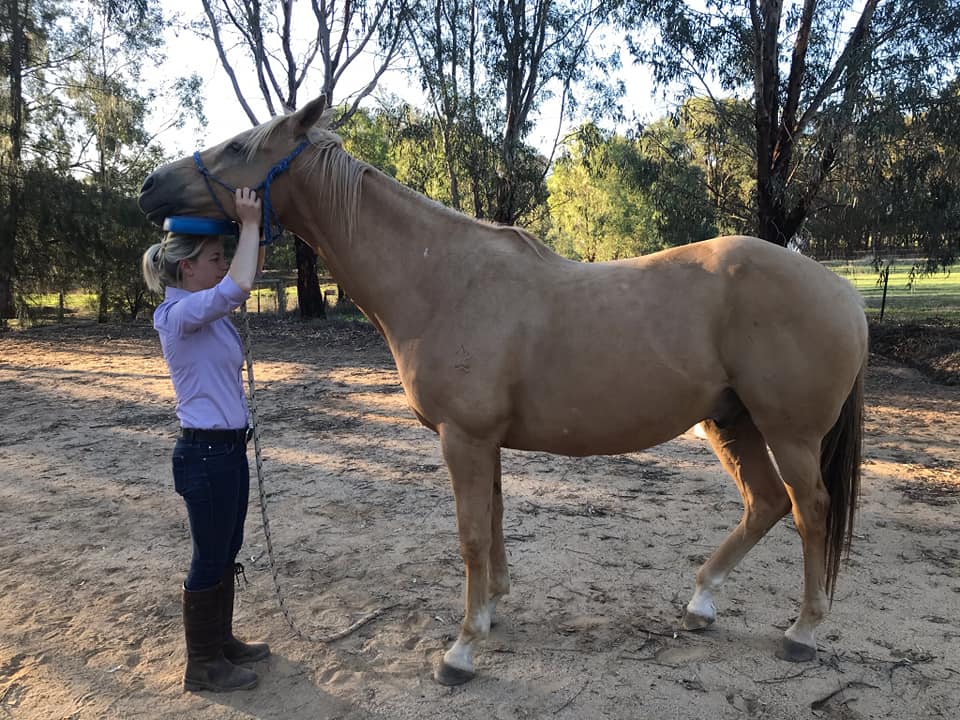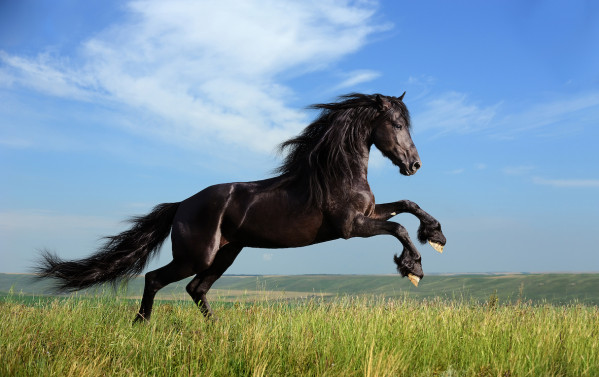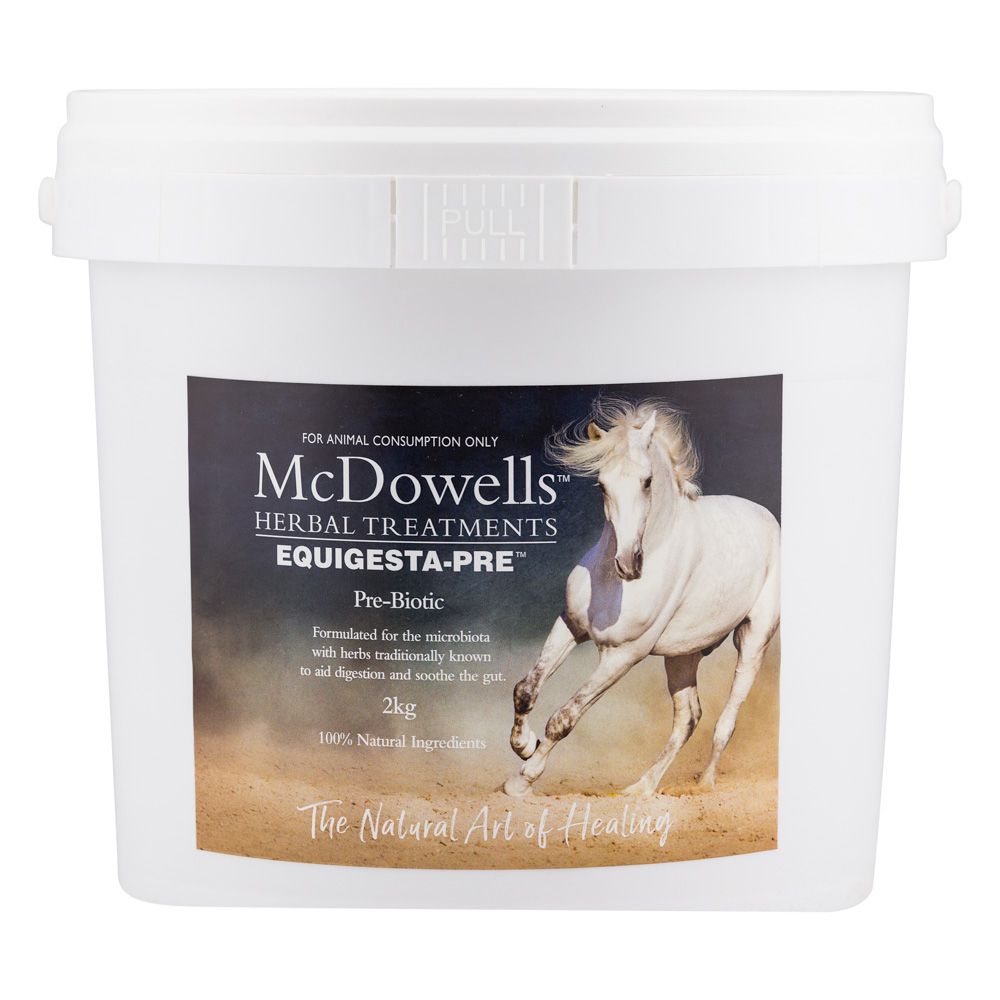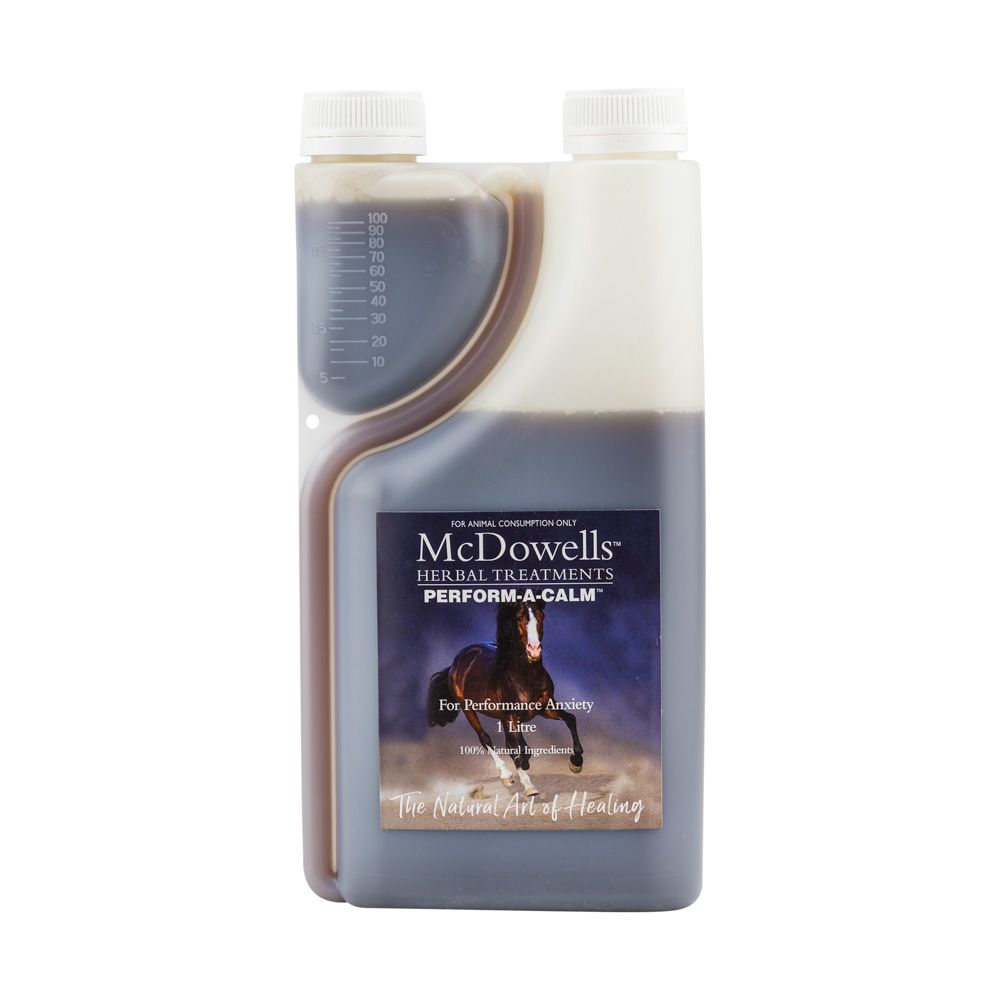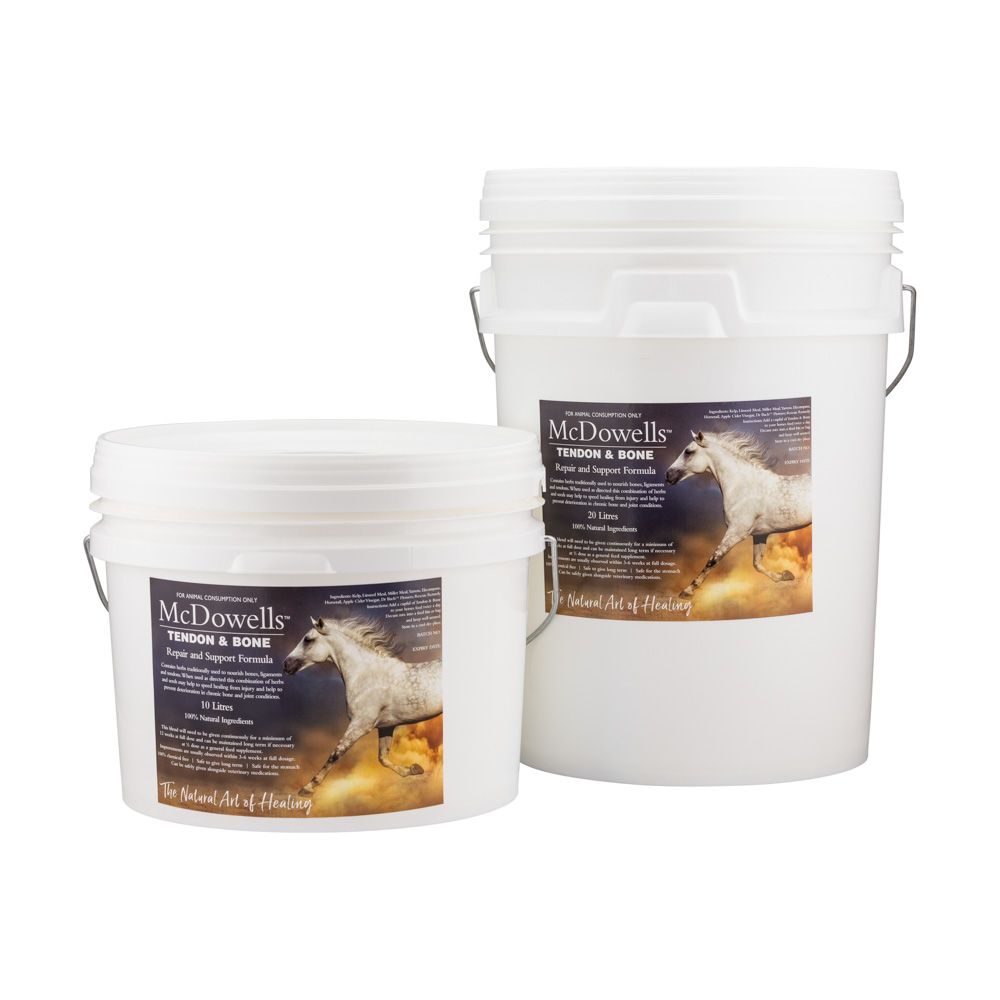Have you looked at your horse's posture lately? Have you stood back and really observed from outside your relationship with him? Look at your horses as if they are not your horse - your horse’s posture can show you their mental state. Asymmetry and body tension will lead to an imbalanced posture and gait, and therefore an imbalanced mind. If you correct the asymmetry and the tension, the mind will follow. A balanced body leads to a balanced mind.
If your horse is tight in his back with his head raised, ready to spook, to bolt and reactive, he is probably in a state of tension and high emotions. If his head is neutral, back soft, limbs in a balanced position, he is more likely to be calm, collected and will come to attention and observe as required without the need to react.
It is amazing to observe the transformation in a Biomechanical Medicine session of a pony that is ready to literally flip over as soon as it feels any pressure to a pony that is trotting along, stretching the head and neck forward with softness to the handler's touch. This is the power of relaxation or tension in the body.
I don’t know about you, but when I have pain and stiffness I am generally a bit grumpy - I see this in my horses too. When the pain is alleviated I feel I can relax, concentrate and absorb what I am trying to learn. The same occurs with the horses I am treating - when the pain is alleviated he/she is in a better mood and can complete the exercises with no complaints and with ease.
Observing your horse's posture
How does your horse urinate?
Resting a limb, very stretched out, takes a lot of focus, tail not lifting?
Does it look comfortable and easy?
How does your horse graze?
Wide stance with one limb always forward, keeps hind legs in one place and under the body, bends his knees or only grazes for short times?
Does he alternate which forelimb is forward or can he can walk and graze easily and stand square?
How does your horse stand?
Doesn’t rest a particular leg but does rest his hind legs when sleeping, often square, legs in line with the shoulders and hips, chest behind shoulders?
Rests one limb mostly, never stands square, resting leg in awkward positions, limbs camped under or out from the body, chest protruding forwards beyond the shoulders?
Hoof balance
One of the most important factors for balance in the horse is the balance of the hooves. The hooves are important for symmetry, balance, proprioception (spatial and limb awareness), circulation and for fascial health of the whole body.
A balanced hoof will promote whole body balance and correct angles through the scapulas. They will allow the thoracic sling to work freely so the horse can lift through the forehand and engage the hind-end. A balanced hoof will not crack or flare and will have the following features:
- A dorsal wall and heel angle within 5 degrees of each other
- The heels and soles either side of the frog with be balanced
- The frog will be wide and open in the central sulcus and be able to contact the ground in motion
- There will be no crevice between the heels, the central sulcus of the frog will stop in line with the start of the heels
- No smell
- Coronet bands will be smooth with good angles
- Frog 2/3 of the sole of the hoof
- Aligned with the bony column of the limb, specifically the pastern.
How do you maintain a balanced hoof?
First of all take notice of your horse's hoof balance and wear. Start asking your farrier/trimmer questions. Get them attended to every 4-5 weeks rather then every 6-8 weeks to begin creating positive change. Use natural hoof supplements and feed as required - soils are typically deficient in copper and zinc (which are very important minerals for hoof health). Ensure the hoof care is promoting a balanced interaction of the hoof with the ground i.e heel first landing and with the frog being loaded in weight-bearing.
Saddle fit
The fit of the saddle will be influenced by the symmetry of the horse, the symmetry of the rider and the saddle itself. A well fitting saddle will allow your horse to move freely, especially through the spine and scapulas. It will not rock or slip or shift forwards or back and the centre point of the seat will be balanced. The girth will be aligned with the girth groove/seat of the horses chest.
A well fitting saddle will allow the horse to lift its back to develop a topline and engage the core, reach with the nose, laterally flex through the spine and move freely. It will also help the rider to sit in a better position and aid them and the horse.
Dental health
The balance of the teeth are very important in the balance of the temporomandibular joint (your horses jaw joint) which is surrounded by a myriad of nerves and fascial connections from the rest of the body including all the way to the hind foot!
The bit is also placed in the mouth and it is important to ensure that the bit fits your horse. A well fitting bit will not squash the tongue, hit the roof the mouth, sit on the bars (the horses jaw bones), pinch the cheeks or hit the molars. It will sit comfortably in the mouth and the horse will have a quiet, soft mouth.
Ensure you get your horses teeth checked by a qualified Equine Dentist i.e Equine Dental Vets at least every 6-12months. To thoroughly assess the horse they need to be sedated. The sedation allows the dentist to have a really good look right up the back and thoroughly check for cavities, which could be causing pain.
Joint health
The horses skeletal system is still growing until they are between 6 and 8 years old, depending on the breed. Unfortunately it is rare that a horse has always been in a balanced posture with all gear fitting and correctly using their body with balanced teeth, feet and myofascial system so they are very prone to the limb joints undergoing wear and tear. Any performance horse should be on a joint supplement to maintain the joint fluid and cartilage and slow down degeneration.Healthy well-moving joints will promote a healthy spine and healthy tendons and ligaments.
The digestive system feeds the whole body and so is therefore vital for energy, hydration, cellular function in all the organs including the muscles. A healthy immune system will allow the horses body to eliminate toxins freely with good lymphatic flow. A healthy nervous system will promote balanced use of muscles and a balance of energy.
Recommended supplements are;
Tendon and Bone
This formula promotes the re-growth of attachment points and the re-tensioning of stretched or damaged ligaments.
Infect-A-Clear
Robust immune systems routinely eliminate infective and metabolic waste as part of a healthy system. A system that is overloaded with inflammation, infection or metabolic waste has a much harder time recovering. The herbs in this mix have been traditionally used to stimulate the horse’s own natural elimination which may help to clear these naturally occurring metabolites thereby improving the immune system's response.
Equigesta-Pre
Traditionally this combination has been used to aid and promote beneficial intestinal microorganisms. It can be used daily as an equine prebiotic to support and stimulate the growth and activity of good bacteria in the digestive system.
Perform-A-Calm
Perform-A-Calm is formulated with herbs that have traditionally been used to nourish and calm the nervous disposition of horses that seem to be overly anxious in their home or when introduced to new stimulus.
Maintaining fascial health
Fascia is like a moist clingfilm layer that allows the underlying structures to slide freely. It covers all of the organs, muscles, bones and nerves and is a continuous layer throughout the body. Healthy fascia will mean the horse's muscles are all blending under the skin without lines defining them. A horse with healthy fascia will have a soft coat that is shiny but not stuck to the underlying tissues.
To promote fascial health in your horse;
- Dynamic and static stretching at least twice a week
- Cross training
- Salt and hydration
- Regular body work sessions
After balancing all of the above then practice the power of observation.
Observe your horse every time you interact with them - observe their demeanour, their facial expression, their gait, their interactions with other horses, their urination, faeces, energy and willingness to interact with you and with their work.
Learn how to listen to them and allow them the time to have an opinion.
Instead of just lifting the leg up to clean the hoof, gently place your hand there and wait and see if they offer the leg to you. Perhaps you have to pick it up with more insistence? Is this the same on every leg? If not, then why not?
The horse knows what you are asking and they may have done it a thousand times, so if they are not doing as expected then ask ‘why?’. Ask why do they swish their tail when I do an exercise one way and not the other way. Why do they struggle with the canter transition or balance in the trot? Why, and how, does their head move in each gait?
The power of asking ‘why’ will create a dialogue with your horse rather than a one-way conversation where only you get a say. The more you open up the dialogue the more the horse will communicate with you and guide you on this journey. It may not always be what you want to hear, however it will always improve your relationship with your horse when you trust their response. Ask why and proceed to figure it out to make your horse more comfortable and make you aware of their weaknesses, so you can make them their strengths.
Dr. Raquel Butler BVSc, G.Dip ABM, GCLTHE, EMRT, CCMRT, Equi-taping practitioner
Equine Science Lecturer – Charles Sturt University
Integrated Veterinary Therapeutics
President of the Animal Biomechanical Medicine Association
